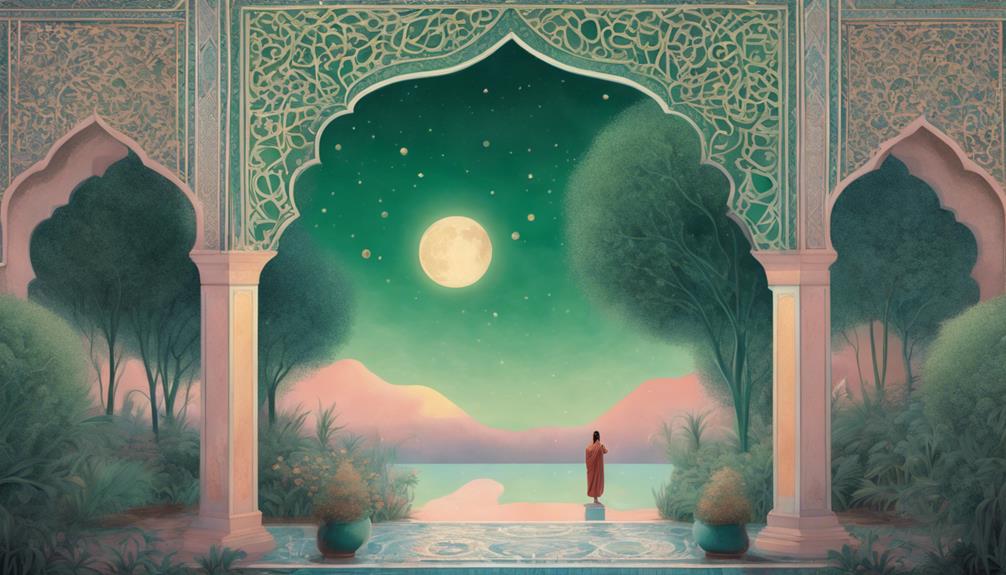As you traverse the world of Persian poetry, you'll find that the ghazal form masterfully intertwines romantic passion with spiritual union, where love and longing converge in a rich tapestry of words. The beloved symbolizes Idealized Beauty, representing Sacred Femininity that transcends mortal boundaries. Poets' voices echo deep-seated desires for sacred intimacy, yearning that transcends human connection to seek a mystical bond with the divine. As you journey through the verses, you'll uncover the poet's spiritual quest, exploring existential crises and longing for transcendence, and discover the whispers of the divine presence that await you.
Roots of Mystical Expression
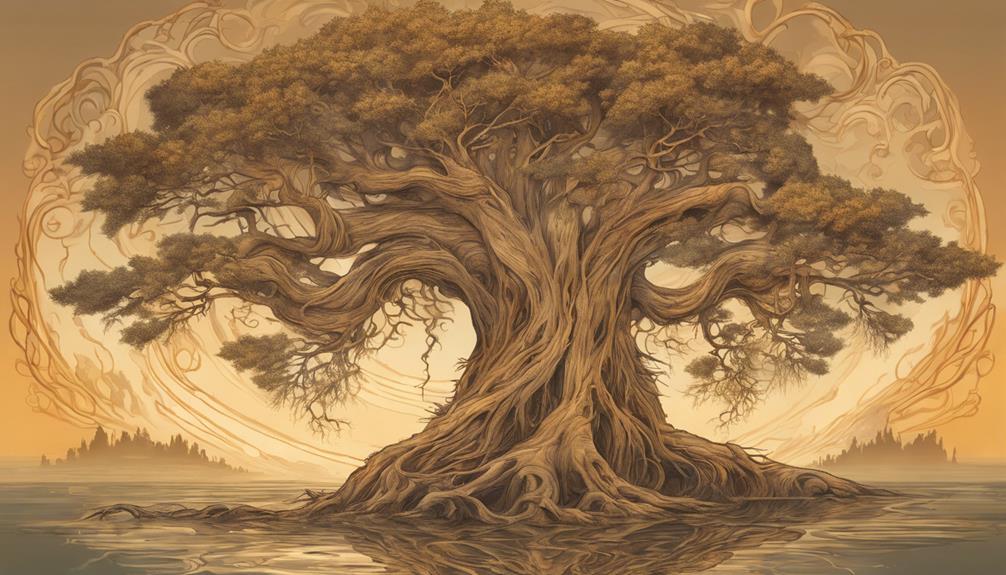
As you investigate the world of Persian poetry, you'll discover that the roots of mystical expression are deeply embedded in the country's rich cultural heritage, where the confluence of Zoroastrian, Islamic, and Sufi influences has cultivated a unique landscape of spiritual inquiry. The Islamic heritage, with its emphasis on the unity of existence and the mystical aspects of the Quran, has had a profound impact on Persian poetry. Sufi influences, in particular, have played a significant role in shaping the mystical dimensions of Persian verse. The Sufi concept of wahdat al-wujud, or the unity of existence, has inspired Persian poets to explore the mystical and the unknown. This confluence of influences has given rise to a distinct literary tradition that seeks to transcend the mundane and connect with the divine. As you explore further into Persian poetry, you'll find that the Sufi emphasis on love, devotion, and spiritual longing has infused the ghazal with a profound sense of mysticism, which continues to captivate readers to this day.
Love and Longing in Verse
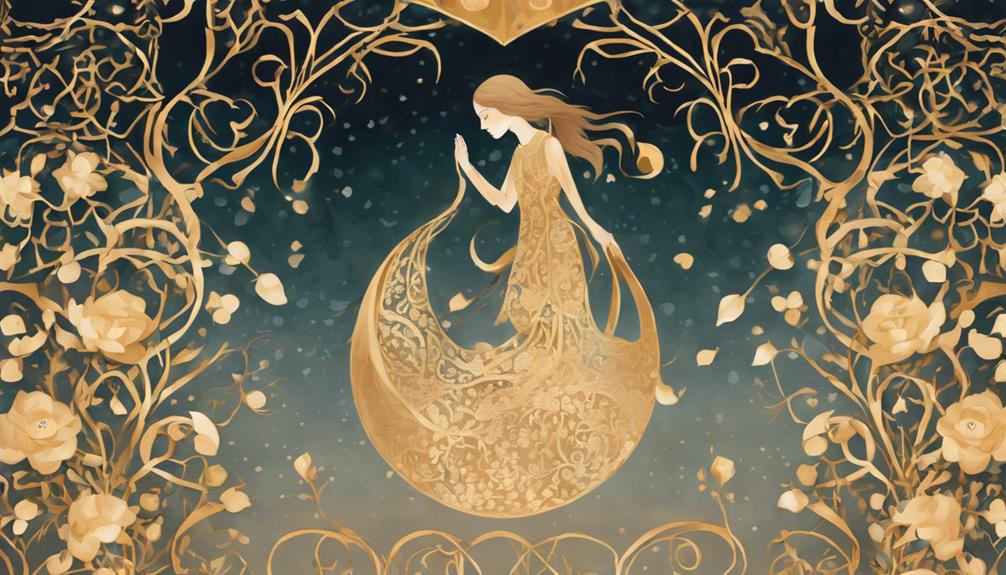
In the domain of Persian poetry, you'll find that love and longing are intertwined as the ghazal form masterfully weaves together the tender threads of romantic passion and the profound yearning for spiritual union. This intricate tapestry of emotions is characterized by intense yearning, which permeates every verse, every rhyme, and every metaphor. The poet's voice, often melancholic and introspective, echoes with a deep-seated desire for sacred intimacy. This longing is not limited to the domain of human connection; it transcends the mundane, seeking a profound, mystical bond with the divine.
As you explore further into the ghazal's labyrinthine structure, you'll discover that love and longing are not mutually exclusive. Rather, they're intertwined, each informing and enriching the other. The poet's quest for spiritual connection is mirrored in their romantic endeavors, and vice versa. This confluence of emotions yields a rich, nuanced exploration of the human experience, one that probes the depths of love, longing, and the human condition.
Symbolism of the Beloved
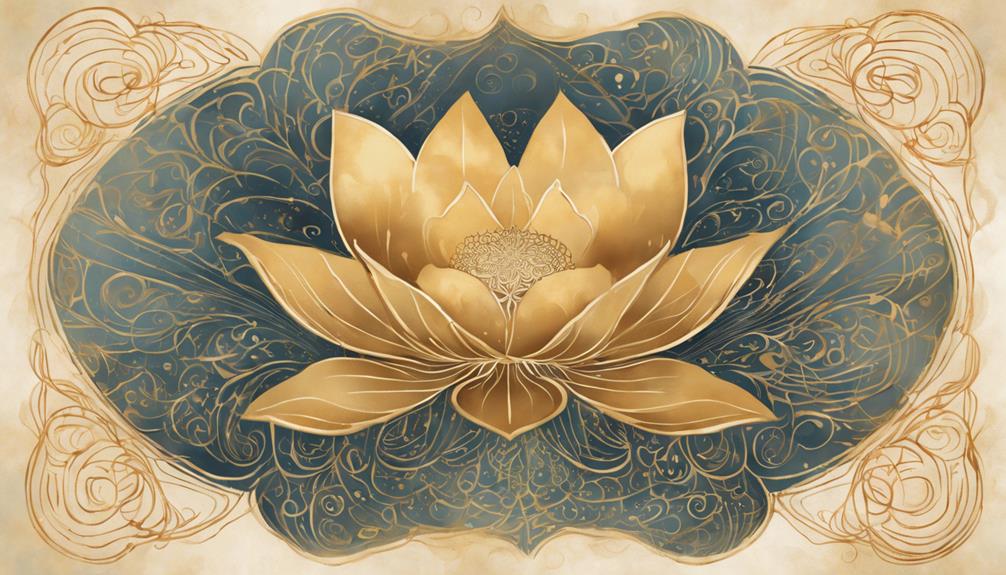
The beloved, often an enigmatic and elusive figure, assumes a multitude of symbolic meanings in the ghazal, embodying both the romantic ideal and the divine. As you explore the world of Persian poetry, you'll discover that the beloved represents an Idealized Beauty, a paragon of virtue and loveliness. This Idealized Beauty is not just a romantic partner, but a symbol of perfection, embodying the highest qualities of human nature. The beloved also embodies Sacred Femininity, a powerful and revered force that transcends mortal boundaries. In the ghazal, the beloved is often depicted as a mystifying and elusive figure, always just out of reach, yet perpetually alluring. This enigmatic quality only adds to the beloved's mystique, making them an even more enchanting and elusive ideal. As you explore the symbolism of the beloved, you'll find that they represent a culmination of human aspirations, a synthesis of the earthly and the divine.
The Poet's Spiritual Quest
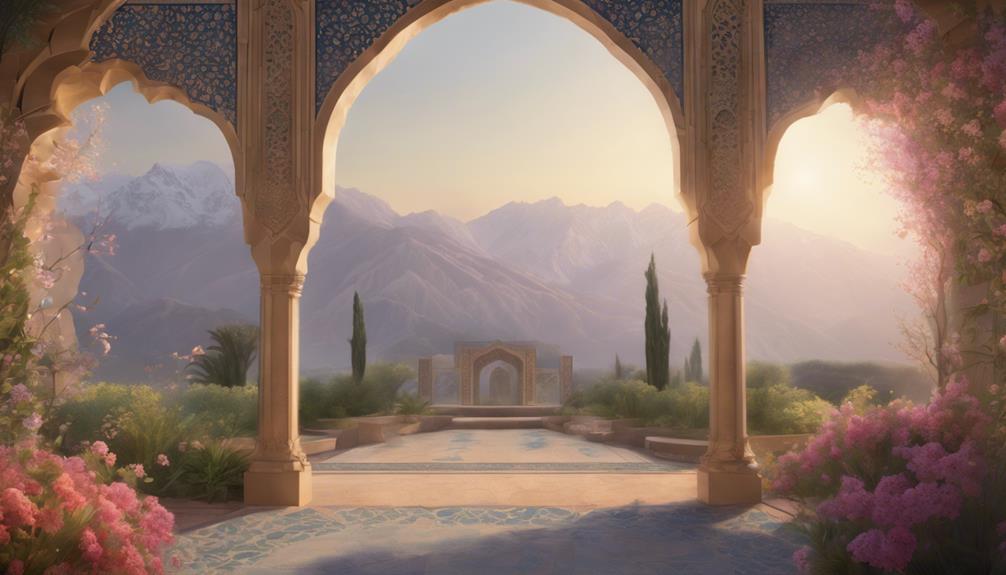
Your own spiritual journey, mirrored in the poet's, begins as you seek to understand the mystical dimensions of the ghazal. As you explore deeper into the poet's inner world, you're struck by the intensity of their spiritual yearning. The poet's inner turmoil is palpable, a reflection of the existential crises that often precede spiritual awakening. Their poetry becomes a sacred vessel, carrying the weight of their longing for transcendence.
Through the ghazal's intricate web of metaphors and symbolism, the poet navigates the labyrinthine corridors of their own psyche. You sense the poet's anguish, their cries of desperation, as they struggle to reconcile the contradictions of human existence. And yet, amidst the turmoil, a glimmer of hope emerges – the promise of spiritual awakening. The poet's quest for self-discovery becomes a tribute to the human spirit's capacity for transformation. As you read on, you're drawn into the poet's world, where the boundaries between the self and the divine begin to blur.
Echoes of Divine Presence

As you explore further into the ghazal's mystical domain, you're enveloped by whispers of the divine, echoes that resonate within you, evoking an unshakeable sense of presence. These divine whispers awaken a deep longing, a yearning to transcend the mundane and connect with the sacred. The ghazal's mystical sphere is characterized by an atmosphere of sacred silence, where the poet's words become a bridge between the human and the divine. In this sphere, the poet's voice becomes a vessel for the divine, conveying the whispers of the beloved. The sacred silence is not an absence of sound, but rather a profound stillness that allows the poet to tune into the divine frequency. As you immerse yourself in the ghazal's mystical world, you begin to discern the subtle nuances of the divine whispers, and the sacred silence becomes a palpable presence that envelops you.
Frequently Asked Questions
Is Ghazal Poetry Only Written in Persian or Other Languages Too?
You might be surprised to learn that over 100 languages have been influenced by Persian poetry. Now, regarding your question, ghazal poetry isn't limited to Persian. While it originated in Iran, the ghazal form has been adopted by poets worldwide, transcending language barriers. The 19th-century ghazal revival, in fact, saw poets writing in Urdu, Turkish, and Arabic, among other languages. So, rest assured, the beauty of ghazal poetry knows no linguistic bounds.
How Does Ghazal Poetry Differ From Other Forms of Persian Poetry?
As you explore the world of Persian poetry, you'll find that ghazal poetry stands out from other forms due to its unique poetic structure. Typically, ghazals consist of couplets (called 'shers') that are linked by a repeating phrase or word, creating a sense of musicality. This distinct structure, coupled with its deep cultural significance, sets ghazal apart from other Persian poetic forms, such as masnavi or qasida, which often prioritize narrative or descriptive elements over lyrical expression.
Are Ghazal Poems Only About Romantic Love or Other Types of Love Too?
As you explore the world of ghazal poetry, you'll discover that it's not just about romantic love. Like the tender shoots of a rose bush, love takes many forms. Familial love, for instance, is a common theme, where poets express devotion to their family and community. Unrequited passion, too, is a recurring motif, as poets lament the absence of their beloved. You'll find that ghazal poetry is a rich tapestry, woven from diverse threads of love, longing, and mysticism.
Can Ghazal Poetry Be Performed Orally or Is It Only Written?
When you explore the world of ghazal poetry, you'll find that it's not limited to written forms. In fact, ghazal poetry can be performed orally, often incorporating performance techniques like melodic recitation and dramatic pauses. Improvisation methods, such as extempore composition, also play a significant role in oral ghazal performances, allowing the poet to respond to the moment and engage with the audience in a unique way.
Are Ghazal Poets Only From Iran or From Other Countries Too?
As you explore the world of ghazal poetry, you'll discover that its masters aren't limited to Iran. In fact, cultural exchange has facilitated the spread of this poetic form across the Middle East and South Asia. You'll find renowned ghazal poets from countries like Turkey, Afghanistan, and India, who've contributed greatly to the genre.
